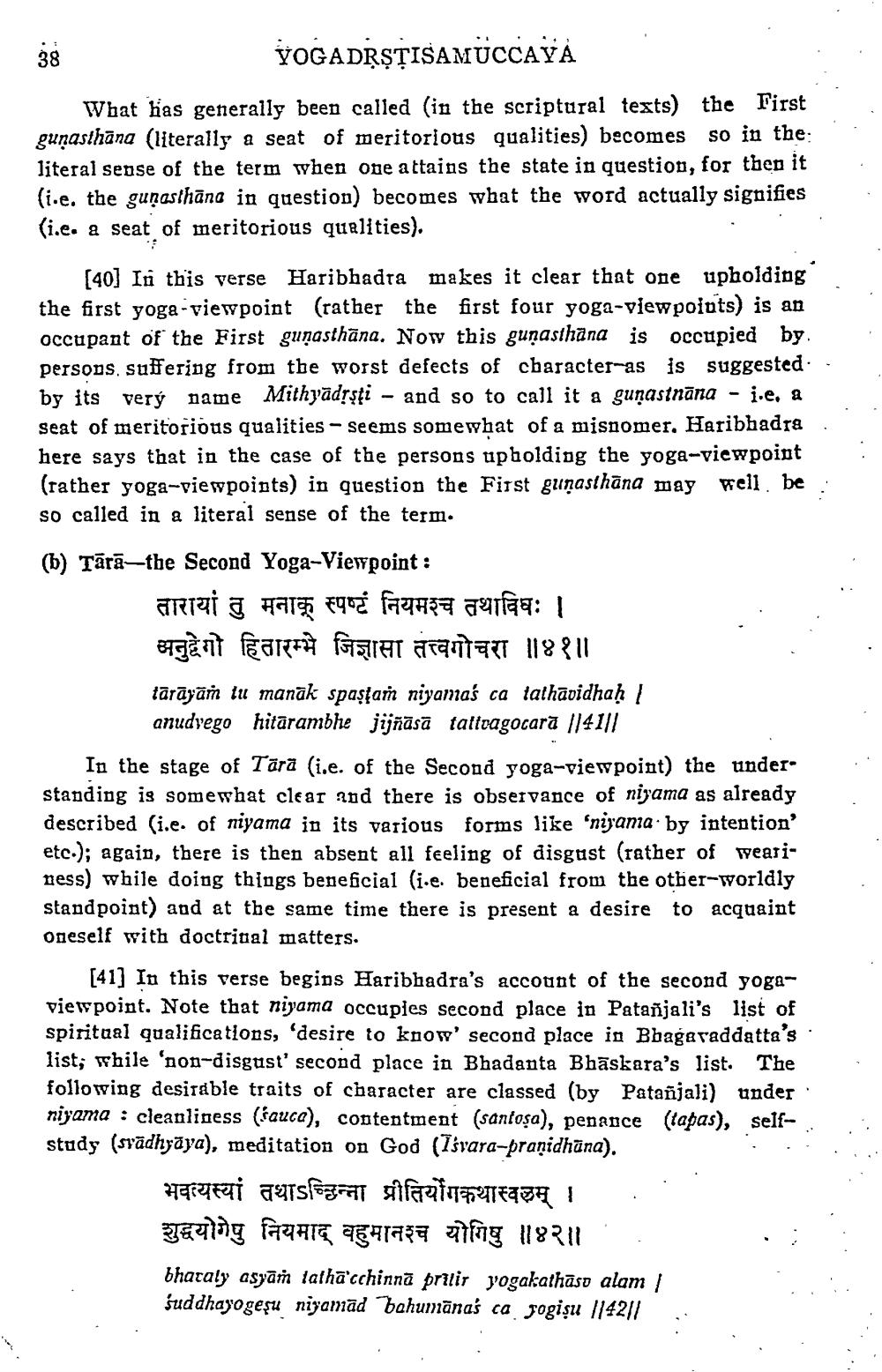________________
VOGADRȘTISAMÜCCAVA
What has generally been called (in the scriptural texts) the First gunasthāna (literally a seat of meritorious qualities) becomes so in the: literal sense of the term when one attains the state in question, for then it (i.e. the gungsthāno in question) becomes what the word actually signifies (i.e. a seat of meritorious qualities).
.
[40] In this verse Haribhadra makes it clear that one upholding the first yoga-viewpoint (rather the first four yoga-viewpoints) is an occupant of the First gunasthāna. Now this gunasthana is occupied by persons, suffering from the worst defects of character-as is suggested. by its very name Mithyādīşti - and so to call it a gunastnāna - j.e. a seat of meritorious qualities - Seems somewhat of a misnomer, Haribhadra here says that in the case of the persons upholding the yoga-viewpoint (rather yoga-viewpoints) in question the First gunasthāna may well be: so called in a literal sense of the term. (b) Tārā—the Second Yoga-Viewpoint:
तारायां तु मनाक् स्पष्टं नियमश्च तथाविधः । अनुद्वेगो हितारम्भे जिज्ञासा तत्त्वगोचरा ॥४१॥ tārāyāñ tu manāk spaştan niyamaś ca tathāvidhaḥ |
anudrego hitārambhe jijñāsā tattvagocarā ||41|| In the stage of Tāra (i.e. of the Second yoga-viewpoint) the under standing is somewhat clear and there is observance of niyama as already described (i.e. of niyama in its various forms like 'nijama by intention' etc.); again, there is then absent all feeling of disgust (rather of weariness) while doing things beneficial (i.e. beneficial from the other-worldly standpoint) and at the same time there is present a desire to acquaint oneself with doctrinal matters.
[41] In this verse begins Haribhadra's account of the second yogaviewpoint. Note that niyama occupies second place in Patañjali's spiritual qualifications, 'desire to know' second place in Bhagavaddatta's list; while 'non-disgust' second place in Bhadanta Bhāskara's list. The following desirable traits of character are classed (by Patañjali) under niyama : cleanliness (rauca), contentment (santosa), penance (tapas), selfstudy (svadhyāya), meditation on God (Tšvara-pranidhūna).
भवत्यस्यां तथाऽच्छिन्ना प्रीतिर्योगकथास्वलम् । शुद्धयोगेषु नियमाद् वहुमानश्च योगिषु ॥४२॥ bharaly asyām lathā'cchinnā prilir yogakathāso alam | śuddhayogeşu nizamād Bahumānaś ca pogișu 114211




